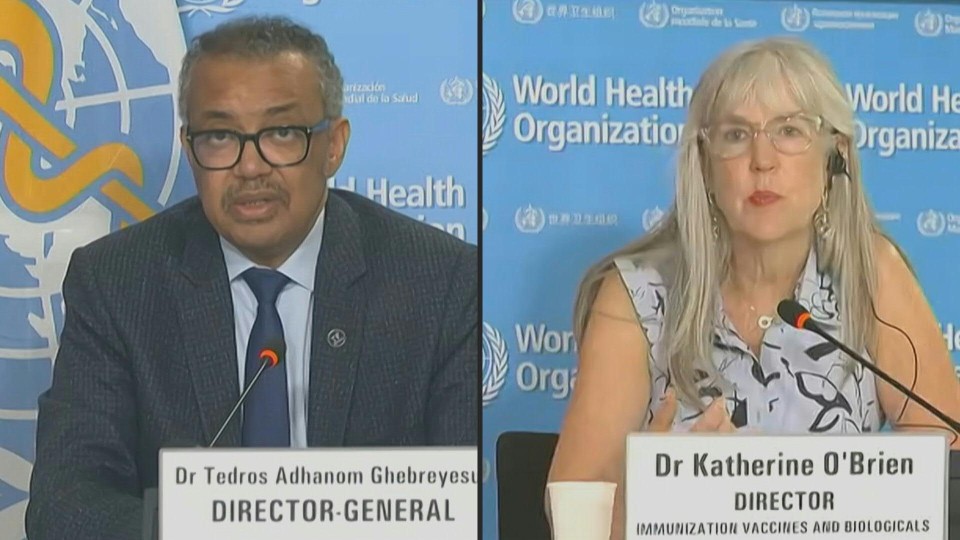
GENEVA, Switzerland (AFP) — Around 18 million doses of the first malaria vaccine will be delivered to 12 African countries by 2025, the World Health Organization, UNICEF and the Vaccine Alliance said Wednesday.
“Malaria remains one of Africa’s deadliest diseases, killing nearly half a million children under the age of five every year,” WHO chief Tedros Adhanom Ghebreyesus told a briefing.
In 2021, 96 percent of the world’s malaria deaths occurred in Africa.
The Mosquirix (RTS,S) vaccine, developed by British pharmaceutical giant GSK, has already been administered to more than 1.7 million children in three African countries — Ghana, Kenya and Malawi — as part of a pilot program.
“It has been shown to be safe and effective, resulting in a substantial reduction in severe malaria and a fall in child deaths,” Tedros said.
Nearly 30 African countries have said they want to receive doses.
In addition to the three test countries, which will continue to receive doses, nine other countries will benefit from supplies, WHO, UNICEF and the Vaccine Alliance (Gavi) said in a statement.
They are Benin, Burkina Faso, Burundi, Cameroon, the Democratic Republic of Congo, Liberia, Niger, Sierra Leone and Uganda.
The first vaccines are expected to arrive in the last quarter of 2023, and be deployed in early 2024.
Tedros said a second malaria vaccine, the R21/Matrix-M developed by Oxford University and produced by the Serum Institute in India (SII), “is under review for pre-qualification” by the WHO, a procedure aimed at ensuring that health products to be supplied to low-income countries are safe and effective.
“It’s really important to remember nearly every minute a child dies of malaria… (vaccines are) an additional tool in the toolbox to fight against the severe disease, the deaths that occur,” said Kate O’Brien, director of the WHO’s immunization and vaccines division.
“(It) is a really essential step forward.”
The vaccine “is a step absolutely in the right direction, and it’s the preview of many more millions of doses that will go out,” she said.
The WHO, UNICEF and Gavi estimate that the global demand for malaria vaccines is expected to reach 40-60 million doses annually by 2026 and then between 80-100 million doses annually by 2030.
Malaria — a disease transmitted to humans by the bites of certain types of mosquitoes — killed 619,000 people worldwide in 2021, according to the latest WHO figures.
© Agence France-Presse







